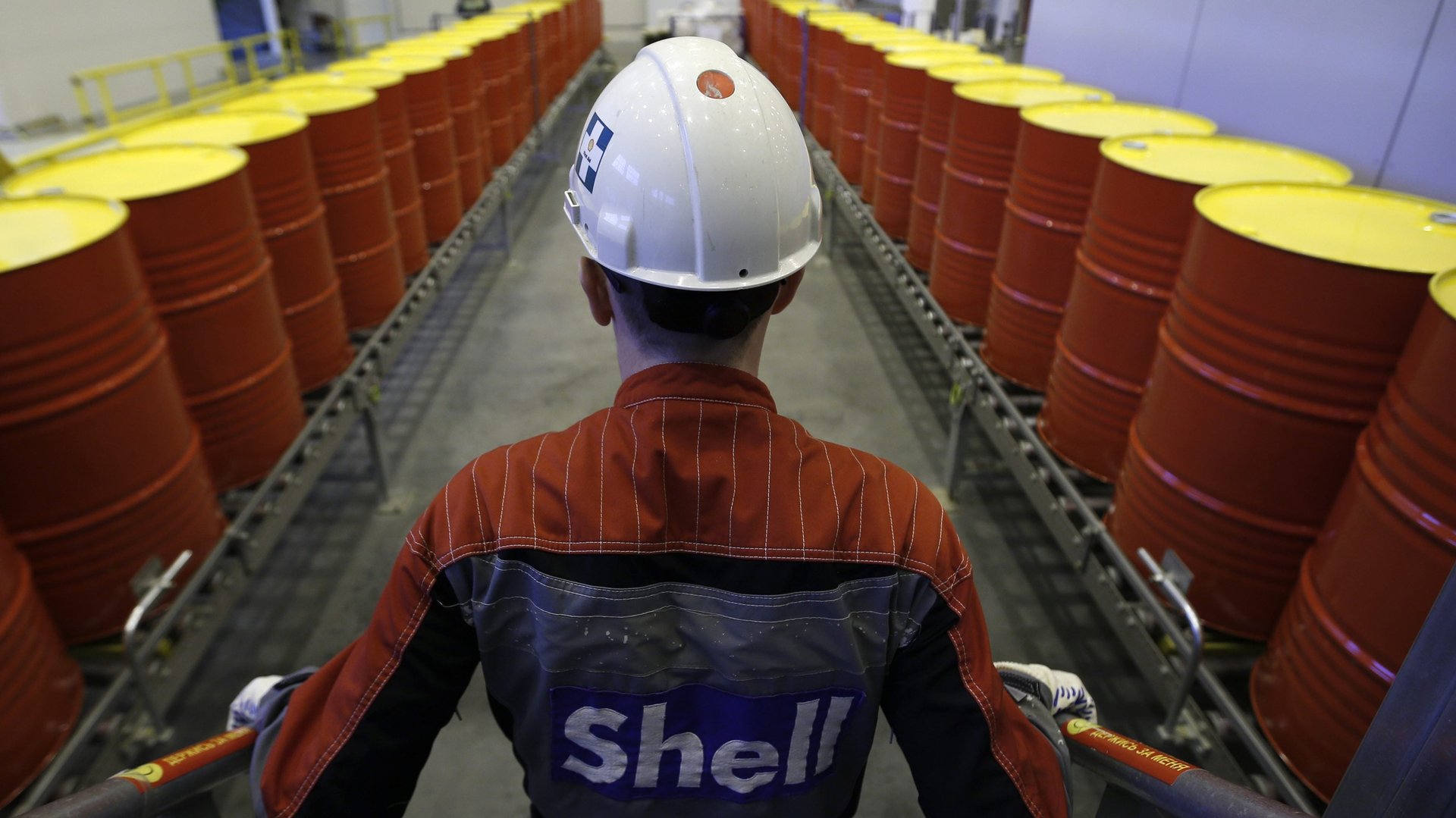Shell is already backtracking on its boycott of Russian oil
This post has been updated with a March 8 statement from Shell.


This post has been updated with a March 8 statement from Shell.
Since the start of Russia’s invasion of Ukraine on Feb. 24, traders have struggled to unload Russian oil: Western buyers are adhering to a voluntary embargo in response to the violence, and in case sanctions start hitting the oil industry.
On Tuesday, March 1, Shell was lauded for cutting ties with Russian firms Gazprom and Salym Petroleum, and for ending its involvement in the Nord Stream 2 gas pipeline. “We are shocked by the loss of life in Ukraine, which we deplore, resulting from a senseless act of military aggression which threatens European security,” Shell CEO Ben van Beurden said at the time. “Our decision to exit is one we take with conviction.”
That conviction lasted less than a week. By Friday (March 4), as the price spread widened between Russia’s Urals crude and Brent crude, the international benchmark for oil prices, Shell bought 100,000 metric tons at a record discount of $28.50 per barrel, according to a report from the Wall Street Journal.
On Twitter, Shell confirmed that it would continue to buy Russian oil, citing a tight market and few alternatives for sourcing crude.
Dmytro Kuleba, Ukraine’s foreign minister, expressed his disappointment.
Shell’s purchase of Russian crude—the first since companies began cutting ties—could signal to the rest of the market that buying Russian oil at a record discount is worth any moral about-face, according to Bloomberg.
An oil embargo may be coming
Thus far, oil and gas have not been included in government sanctions against Russia. But on Sunday, US secretary of state Anthony Blinken raised the possibility of a full oil embargo against Russia, saying the US was in “very active discussions” with European allies. An embargo would further tighten supplies, push high global oil prices even higher, and deal a heavy blow to Russia’s already battered domestic economy. In the years leading up to the invasion, oil and gas revenues contributed to filling Russia’s war coffers.
The US is already seeing retail gas prices skyrocket, with national averages hitting $4 a gallon on Sunday, the highest since 2008, CNBC reported.
Update: On Tuesday (March 8), Shell apologized for its purchase of Russian crude, following a backlash. The company said it would donate funds from its Russian oil purchases to humanitarian aid for Ukraine. Additionally, Shell said it would shut service stations and other operations in Russia, cease to renew any Russian term contracts, and find alternative fuel sources. The US and UK announced a Russian oil embargo, also on Tuesday.